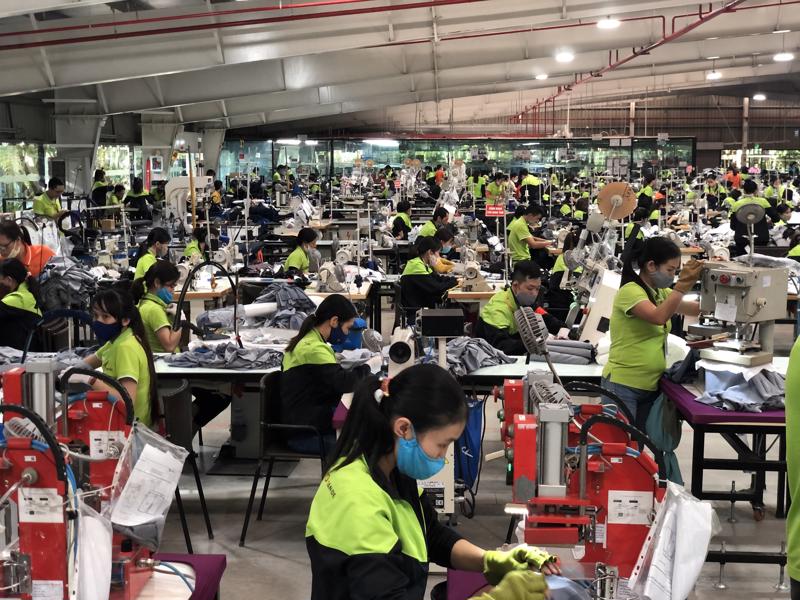Two GIZ projects will partner with Decathlon Company to enhance capacity in climate change adaptation, water and energy efficiency and chemical management at factories in the fashion industry supply chain. in Vietnam in 2022…

The textile industry has high energy costs.
The German Organization for Development Cooperation (GIZ) and Decathlon Company have just signed a memorandum of understanding to cooperate to improve environmental performance in the textile and garment supply chain in Vietnam. This cooperation is within the framework of GIZ's Program to Improve the Environmental Performance of Factories (PIE) in Asia.
Marc Beckman, GIZ's FABRIC project manager, said that due to CO2 emissions in the manufacturing process, the global fashion industry is one of the causes of climate change, but at the same time it is also a major contributor to climate change. affected by climate change.
Existing impacts and emerging risks include disruptions in supply chains, particularly in production and transportation, high energy and water prices, and growing demand for Friendly products with the environment.
In addition, global commitments and European legal requirements, including the German Business Appraisal Law coming into force in 2023, are increasing pressure on brands and multinational companies due to requires the identification, prevention, mitigation and accountability of environmental and social risks throughout the supply chain.
Accordingly, the training course “Action for Climate” will provide basic and specialized knowledge for the fashion industry on climate change, solutions to calculate and reduce greenhouse gases; along with energy efficiency measures and renewable energy. The course content is developed in cooperation with UNFCC and 13 brands, including Decathlon.
Meanwhile, the course “e-REMC - Chemical Management” will promote factories to perfect and implement a sustainable chemical management system. These online training and consulting programs follow the factory realities, meet the learning needs of factory employees, especially during Covid-19 and are cost-effective in implementation.
Responding to climate change requires working with international brands to improve the capacity of factories in the supply chain where the environmental impact and emissions are greatest.
"These innovative approaches will enhance the factory's ability to protect the environment, helping them to increase their overall competitiveness in the global supply chain. The FABRIC project will share its successes with industry planners. policies to replicate lessons to other countries, while learners have access to a free online training platform," emphasized Mr. Marc Beckman.
For the BEM Project, GIZ will support Decathlon in converting coal use by using sustainable biomass sources for factories in Vietnam.
The BEM project will provide technical support to Decathlon to apply advanced energy efficiency methods at the boilers of plants in the supply chain, find solutions for biomass sourcing, market access. biomass for each specific plant and identify biomass sources near the location where the plant clusters are operating.
According to the BEM Project Director, the long-term goal of the project is to improve the prerequisites for using sustainable biomass for electricity and heat production in Vietnam. Since 2019, the BEM project has cooperated with Decathlon Vietnam to organize a series of activities to raise awareness and support this green energy transition.
With more than 100 factories of suppliers in the textile, footwear and accessories sectors in Vietnam, Decathlon will share the successful lessons from working with GIZ with local and international brands in relevant forums, especially the way the company promotes sustainable development in the supply chain. Vietnam is one of the leading countries in textile production but this development will become a burden. heavy for the environment in the future, if the production process of the textile industry is still heavily dependent on coal and oil.
Chu Khoi